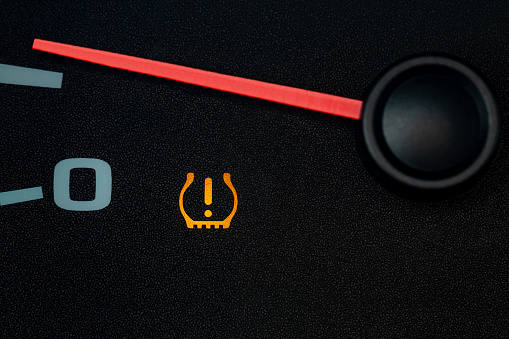Future Of TPMS Sensor Technology And What To Expect
Tire Pressure Monitoring System (TPMS) technology has been around for several years now. And it has evolved significantly since its inception. TPMS systems alert drivers when the vehicle\’s tire pressure is low. It can help prevent accidents caused by tire blowouts and improve fuel efficiency.
With its evolution over the years, here’s a guide to what future TPMS sensors hold for motorists.
Advanced TPMS Sensor Technology

Several new TPMS sensor technologies are currently being developed or have recently been introduced to the market. Here are some examples:
Capacitive TPMS Sensors
This future TPMS sensor technology uses changes in electric capacitance to detect changes in tire pressure. This technology can provide more accurate and stable readings compared to traditional TPMS sensors.
Magnetic Field TPMS Sensors
Magnetic field TPMS sensors use changes in magnetic fields to detect changes in tire pressure. These sensors can be more durable than traditional sensors, as they are less likely to be affected by temperature changes or electromagnetic interference.
Optical TPMS Sensors
They use infrared light to detect changes in tire pressure. This technology can provide more accurate and reliable readings, even in harsh weather conditions.
Bluetooth TPMS Sensors
Bluetooth TPMS sensors can communicate directly with a driver\’s smartphone or tablet, providing real-time tire pressure information and alerts. This technology can make it easier for drivers to monitor tire pressure, as they can receive alerts on their phone without having to check their vehicle\’s dashboard.
Integrated TPMS Sensors
Some tire manufacturers are developing integrated TPMS sensors that are built directly into the tire itself. This can provide more accurate and reliable readings, as the sensor is in direct contact with the tire.
The new TPMS sensor technologies provide more accurate, reliable, and convenient tire pressure monitoring capabilities to drivers. As technology continues to advance, we can expect to see even more innovations in this area in the future.
What To Expect From The Future TPMS Sensors?

Tire Pressure Monitoring System (TPMS) technology is likely to see continued development in the future, with advancements that could improve accuracy, functionality, and ease of use.
Here are some potential developments to expect from the future TPMS sensors:
Improved Accuracy
Future TPMS sensors may incorporate more advanced pressure monitoring technology, such as using microwaves or lasers to measure tire pressure. This could lead to more precise readings and more accurate alerts when tire pressure is low.
Predictive Maintenance
Some TPMS sensors could use data analysis to predict when a tire is likely to fail or require maintenance. This could help drivers take proactive steps to prevent a flat tire or other tire-related problems before they occur.
Automated Tire Pressure Adjustment
In the future, TPMS sensors may be able to automatically adjust tire pressure as needed. This could help optimize fuel efficiency and improve safety, as it would ensure that tires are always at the correct pressure.
Integration With Other Systems
TPMS sensors could be integrated with other vehicle systems, such as stability control or collision avoidance systems, to provide more comprehensive safety features.
More Efficient Sensor Technology
Future TPMS sensors may use less power and have longer battery life, making them more efficient and cost-effective for vehicle owners.
TPMS Sensor Technology Of The Future

In the future, we can expect TPMS technology to continue to evolve, and some possible advancements could include:
Wireless TPMS
Wireless TPMS sensors can communicate with your vehicle\’s computer without the need for a physical connection. This could lead to simpler installation and maintenance of TPMS sensors.
Smart TPMS
Smart TPMS sensors can use artificial intelligence and machine learning to analyze tire data and make predictions about tire wear, road conditions, and other factors that affect tire performance. This could lead to more accurate tire pressure readings and more efficient driving.
TPMS For Electric Vehicles
As electric vehicles become more popular, there may be a need for TPMS sensors that can monitor not just tire pressure but also tire temperature. This could help prevent overheating of the tires and increase the efficiency of electric vehicles.
This was all about the future TPMS sensors and what to expect from the advanced technology. Moreover, some of these TPMS sensors are already available in the market and we can expect more improved technology in the future enhancing the safety of the vehicles.
Stay tuned to the Porcsi News and find out more details on the TPMS sensors and technology.
